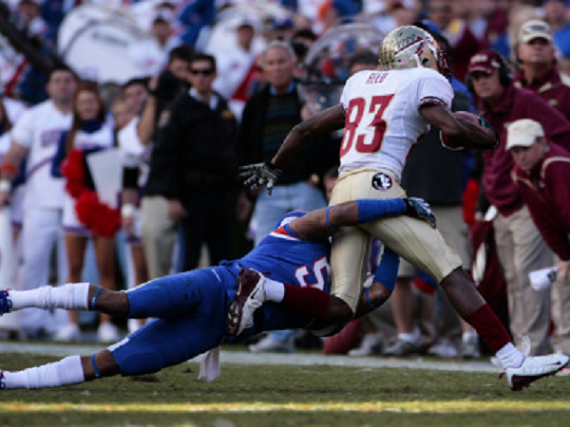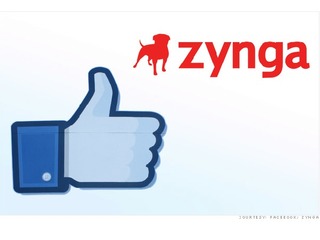
For better or worse, Facebook and Zynga are still tied together. The performance of one will ultimately affect the other. What was once a mutually beneficial relationship between the largest social media network and the largest mobile gaming company the U.S., though, has now become an albatross around Facebook’s neck as Zynga’s fortune continually turn for the worse.
Zynga released a statement Thursday saying that it was lowering its outlook based on disappointing preliminary third-quarter results. The company is in serious trouble and it looks like it may drag Facebook down with it.
In a preview of its financial results for the third quarter of 2012, Zynga said that it expected to report revenue in the range of $300 million to $305 million and bookings in the range of $250 million to $255 million. The company also said that it will be reporting a net loss of between $90 million and $105 million, with non-GAAP net loss between $2 million and $5 million.
As a result, Zynga is now lowering expectations for the year, projecting full 2012 booking to be in the range of $1.085 billion to $1.100 billion, down from its previous expectations of between $1.150 billion to $1.225 billion. Adjusted EBITDA is projected to be in the range of $147 million to $162 million, down from $180 million to $250 million.
Due to Zynga’s weak performance, JP Morgan analyst Doug Anmuth has lowered his estimates for Facebook’s payments revenue in 2013 to $582 million from $797 million, based on how much of its revenue will come from Zynga.
“We’re lowering our Payments estimates for Facebook on the heels of Zynga’s pre-announcement on Thursday after the close. In early Sept. we cut our Payments ests. substantially due to Zynga’s weak performance and broader gaming challenges for Facebook,” Anmuth wrote.
“We expect Facebook shares to be pressured in the near term as Zynga’s outlook weighs on high-margin Payments revenue and Facebook’s overall earnings profile.”
Anmuth estimates that Zynga was responsible for 54% of Facebook’s Payments revenue in the second quarter of 2012, down from 64% the previous quarter. That means that Zynga contributed 13% of Facebook’s total revenue, with 4% coming from Facebook pages generated by Zynga apps.
If Anmuth’s numbers are correct, it would mean a continuation in the decline of revenue that Facebook must rely on from Zynga.
In the first quarter of this year, 15% of Facebook’s total revenue was brought in from Zynga. Of that revenue, around 11% came from the 30% in transaction revenue Facebook takes from Zynga for virtual goods, in addition to direct advertising bought by Zynga. The other 4% came from advertising that was done on Zynga games.
That number was down from 19% the previous quarter, where 12% of Facebook’s revenue came directly from Zynga and 7% came from the revenue generated by ads.
Despite Zynga’s lower percentage, Facebook revenue from payments and other fees from its game developers was $186 million in the first quarter, nearly double the $94 million it made in the first quarter of 2011.
Zynga’s preliminary results for the third quarter follow disappointing results in the second quarter as well.
In July, Zynga lowered its booking estimates after a disappointing second quarter, from an estimation of $1.43 billion to $1.5 billion. In its quarterly earnings report, Zynga reported a loss of 3 cents a share, or a 1 cent profit on an adjusted basis, on revenue of that grew 19% to $332 million, far short of analysts’ expectations of 5 cents a share on revenue of $345 million.
In an earnings call after the release of the second quarter numbers, Zynga CEO and Founder Mark Pincus blamed the poor numbers on changes that occurred to the Facebook gaming system.
Earlier in the quarter, Facebook started emphasizing new games in its news feed and notifications so that people have a greater level of discovery. Previously, Facebook gamers would have had to know what games to look up and install or seen what their friends were playing — this form of discovery gives the advantage to bigger games from bigger companies.
The change pushed existing games down 15% across the platform, specifically older games like Zynga’s CasteVille and CityVille.
Zynga’s stock opened Friday down over 18%, to a new low, and has only gone down from there. It is currently trading at $2.22, down over 21%.
Facebook’s stock has also suffered, dropping 2.75%, to $21.34 a share.
(Image source: http://www.tampabay.com)


















